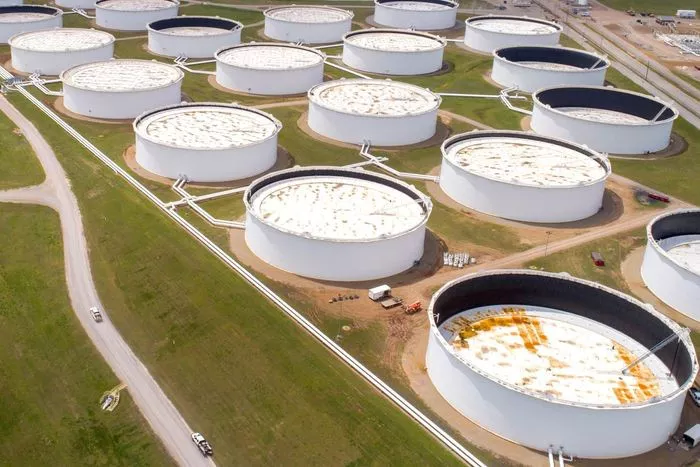Brent Crude Oil is a term often encountered in discussions about the global oil market. As one of the most significant benchmarks in the oil industry, understanding what Brent Crude Oil represents, its history, and its impact on the global economy is essential. This article aims to provide a comprehensive overview of Brent Crude Oil in an easy-to-understand, objective, and professional manner.
Introduction to Brent Crude Oil
Definition and Origin
Brent Crude Oil refers to oil extracted from the North Sea, specifically from the Brent, Forties, Oseberg, Ekofisk, and Troll oil fields. Named after the Brent oil field discovered in the North Sea in 1971, it has become one of the primary global benchmarks for oil pricing.
Importance as a Benchmark
Brent Crude Oil serves as a major price benchmark for oil purchases worldwide. Its significance lies in its role as a reference point for pricing approximately two-thirds of the world’s internationally traded crude oil supplies. The pricing of various grades of oil around the world is often based on Brent Crude, making it an essential component of the global oil market.
Historical Background of Brent Crude Oil
Discovery and Development
The Brent oil field was discovered by Shell UK Exploration and Production in 1971. The field’s development marked a significant milestone in the North Sea oil exploration and production industry. The first oil from the Brent field was extracted in 1976, and since then, the field has played a crucial role in the UK’s oil production.
Evolution as a Benchmark
Initially, Brent Crude was just one of many North Sea crudes. However, due to its consistent production, high-quality light sweet crude characteristics, and logistical advantages, it gradually became a benchmark. The inclusion of additional North Sea grades like Forties, Oseberg, Ekofisk, and Troll further solidified its status as a reliable pricing reference.
See Also: 6 Treatments That Crude Oil Needs to Undergo Before Use
Characteristics of Brent Crude Oil
Quality and Composition
Brent Crude is classified as a light, sweet crude oil due to its low sulfur content (usually less than 0.5%) and relatively low density. These characteristics make it easier and less costly to refine into valuable products such as gasoline and diesel.
Geographical Location
The Brent Crude benchmark pertains to oil produced in the North Sea, which is bordered by the UK, Norway, Denmark, Germany, the Netherlands, and Belgium. The strategic location of these fields allows for relatively easy access to European and global markets.
Brent Crude Oil Market Dynamics
Trading and Pricing
Brent Crude Oil is traded on the Intercontinental Exchange (ICE) and the New York Mercantile Exchange (NYMEX). The pricing of Brent Crude futures contracts on these exchanges influences global oil prices. The price of Brent Crude is also affected by factors such as supply and demand dynamics, geopolitical events, and economic indicators.
Role in Global Economy
As a key benchmark, the price of Brent Crude impacts the cost of numerous products, including gasoline, diesel, and heating oil. It influences energy policies, investment decisions, and economic forecasts. The fluctuations in Brent Crude prices can have significant implications for both producing and consuming nations.
Comparing Brent Crude to Other Oil Benchmarks
West Texas Intermediate (WTI)
West Texas Intermediate (WTI) is another major oil benchmark, primarily used for oil produced in North America. While Brent Crude is sourced from the North Sea, WTI is extracted from oil fields in the United States. WTI is typically lighter and sweeter than Brent, but both benchmarks are used to price different grades of crude oil globally.
Dubai/Oman Crude
Dubai/Oman Crude is a benchmark for Middle Eastern oil. It represents the price of oil produced in the Persian Gulf and is widely used to price crude oil exports from the Middle East to the Asia-Pacific region. Unlike Brent and WTI, Dubai/Oman crude is heavier and has a higher sulfur content.
Factors Influencing Brent Crude Oil Prices
Supply and Demand Dynamics
The fundamental principle of supply and demand plays a critical role in determining Brent Crude prices. An increase in global oil production or a decrease in demand can lead to lower prices, while reduced production or increased demand can push prices higher.
Geopolitical Events
Geopolitical events, such as conflicts, political instability, and sanctions in oil-producing regions, can significantly impact Brent Crude prices. Any disruption in oil supply due to geopolitical tensions can lead to price spikes.
Economic Indicators
Economic indicators, such as GDP growth, industrial production, and employment rates, influence oil demand and, consequently, Brent Crude prices. A strong economy typically leads to higher oil demand, pushing prices up, while a weak economy can result in lower demand and prices.
Impact of Brent Crude Oil on the Energy Market
Influence on Gasoline Prices
Brent Crude prices directly affect gasoline prices. Higher Brent prices usually translate to higher gasoline prices, impacting consumers and businesses. Conversely, lower Brent prices can lead to reduced gasoline costs.
Effect on Energy Policies
Governments and policymakers monitor Brent Crude prices to make informed decisions about energy policies, such as subsidies, taxes, and strategic reserves. Fluctuations in Brent prices can prompt adjustments in these policies to ensure energy security and economic stability.
Brent Crude Oil in the Future
Challenges and Opportunities
The Brent Crude market faces several challenges, including the depletion of North Sea oil fields, regulatory changes, and competition from alternative energy sources. However, advancements in extraction technologies and the integration of additional crude grades into the benchmark present opportunities for maintaining its relevance.
Sustainability and Environmental Concerns
The oil industry, including Brent Crude, faces increasing scrutiny over its environmental impact. Efforts to reduce carbon emissions and transition to renewable energy sources are influencing the future of Brent Crude. Companies and governments are investing in sustainable practices to balance energy needs with environmental considerations.
Conclusion
Brent Crude Oil is a cornerstone of the global oil market, serving as a vital benchmark for pricing and economic analysis. Its quality, strategic location, and historical significance have cemented its role in the energy industry. Understanding Brent Crude’s characteristics, market dynamics, and future prospects is essential for stakeholders across the globe. As the world transitions to a more sustainable energy landscape, Brent Crude’s role may evolve, but its importance in the oil market remains undeniable.
Related topics:






























